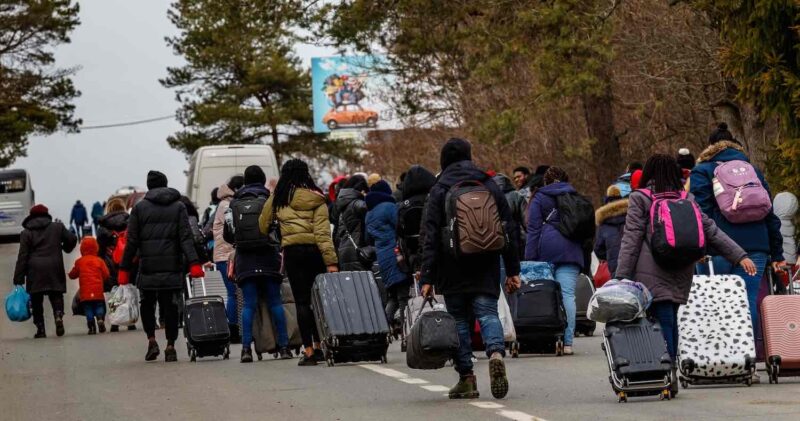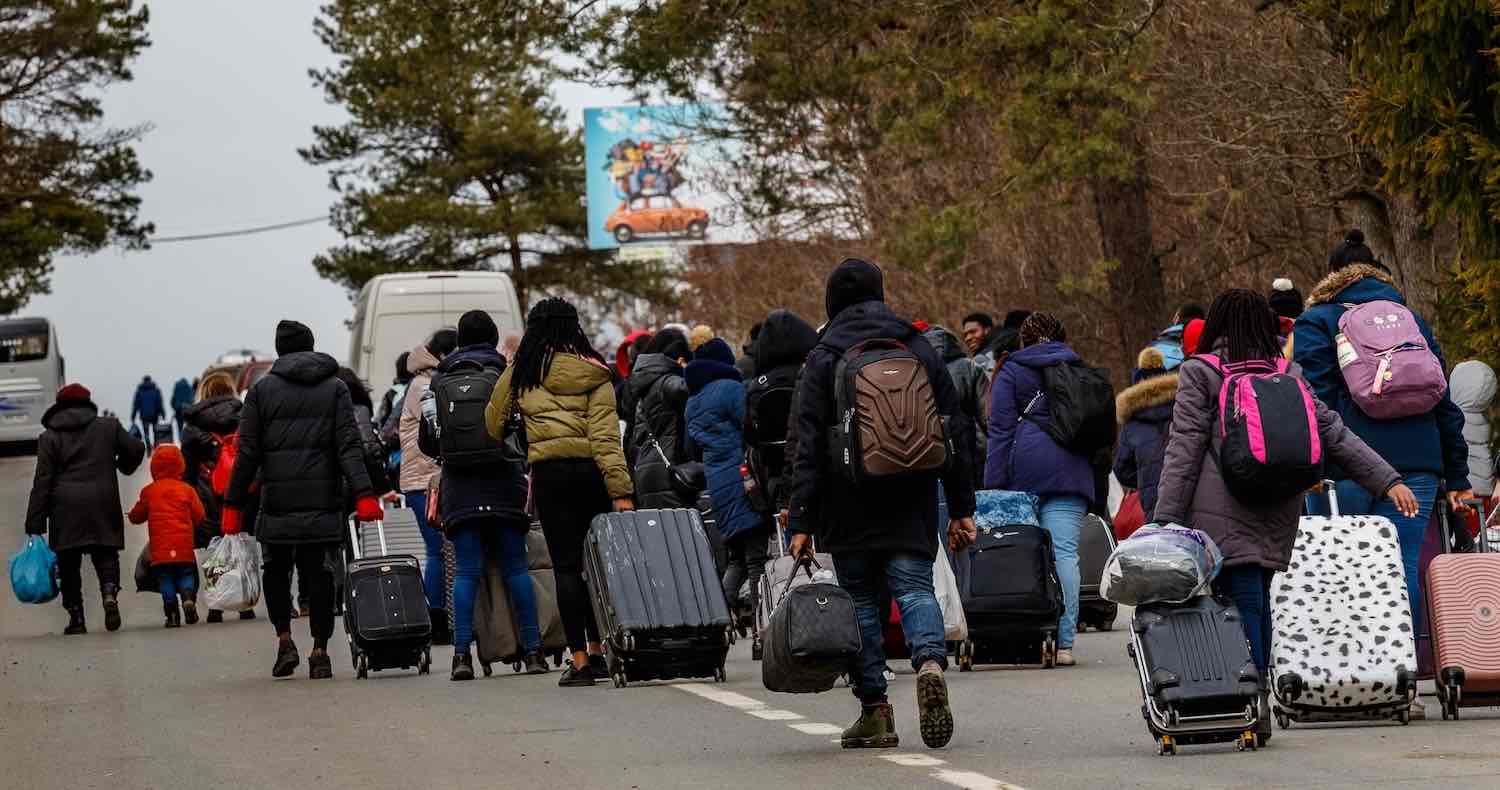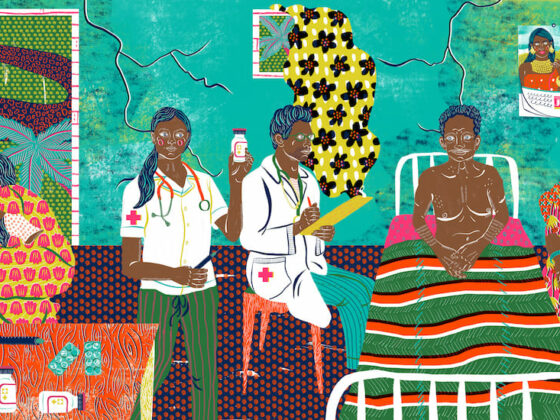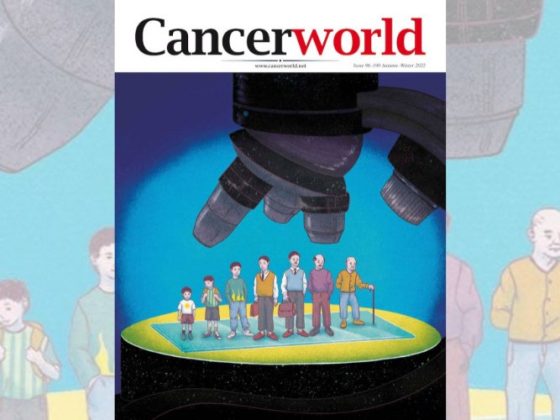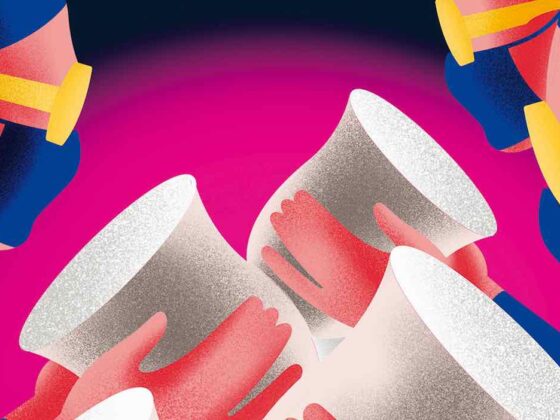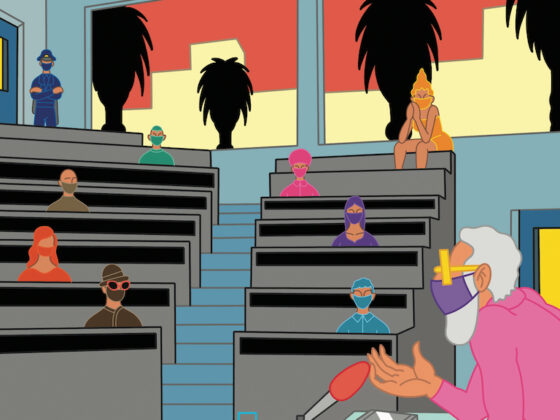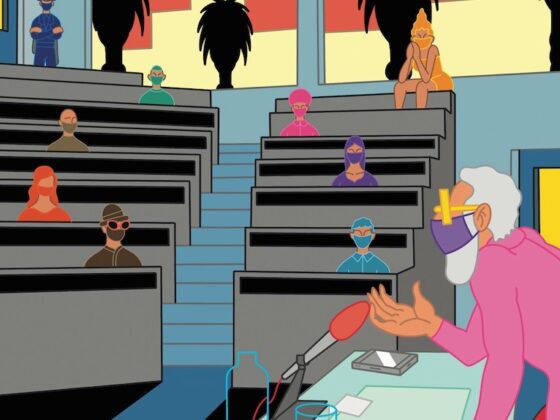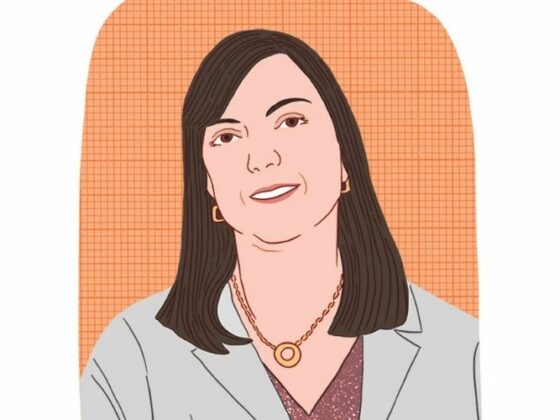“It is sufficiently obvious that the problems of reconstruction following the war will tax the intelligence and good will of mankind to the utmost. It is also certain that mistakes made during this period will have more serious consequences than similar errors in a period of less social plasticity. By the same token, wise moves will produce greater and more permanent good… mankind must agree on some system of ethics, some basic philosophy, which will make for co-operation and human welfare.”
The above quote – and part of the title of this editorial – come from a letter by English zoologist T.D.A. Cockerell to the journal Nature, published on April 25, 1918, entitled “Reconstruction Problems and the Duty of Science”.
The world was coming out of World War I, the largest military conflict in human history at that time, with an estimated 20 million deaths, and was plunging straight into a pandemic that would eventually kill around 50 million people – the Spanish flu. Comparisons, of course, have their limitations, and can even be detrimental, but the message in Cockerell’s letter is a relevant witness to how scientists contribute their views on peace and reconstruction.
In a time of multiple crises, where our “normal” has been turned upside-down, the duty of science is to follow the world emergencies and to work and write “global”.
The Covid-19 pandemic seems to have reached, or is reaching its peak: restrictions have been lifted in most countries, economies are trying to re-emerge and health care systems are tackling the massive backlog created both by the virus and the lockdown measures. According to the World Health Organization, 6,099,380 coronavirus deaths were recorded to April 2022, but the Covid-related excess deaths record is much higher, estimated at 18 million worldwide. Around 50% of the 470 million Covid survivors have experienced some level of postacute sequelae of Covid-19 (PASC) infection, commonly referred to as “long Covid”. Covid-19 sequelae include cardiovascular, pulmonary, fatigue and neurological conditions.
Specifically for cancer we know that oncological patients could be more vulnerable to SARS-CoV-2 symptoms than the general population, and Cancer World has reported on many studies showing the various ways in which cancer care has suffered during lockdowns.
The AACR Report on the Impact of Covid-19 on Cancer Research and Patient Care “presents current evidence on the burden of Covid-19 among patients with cancer and highlights the challenges as well as future opportunities created by the pandemic in cancer research and patient care.” (see also Cancer World After Covid: AACR call to action to improve cancer care).
As the conflict in Ukraine continues, the humanitarian crisis becomes ever more intense, access to food, running water, housing, heating, electricity, healthcare, and medical supplies is deeply disrupted. More than 4 million refugees are estimated to have fled Ukraine and – and that number continues to rise. An estimated 6.5 million are internally displaced, with a further 13 million stranded in affected areas, unable to leave.
Hospitals have been shelled, and other objects indispensable to the survival of the civilian population, such as foodstuffs, drinking water installations and supplies, have been targeted.
Adding to all the imaginable and unimaginable traumas of war, physical injuries and even mental health harms, the sanitary situation provides a worrying breeding ground for infectious diseases, starting, as would be expected, with a resurgence of Covid-19 cases, due to over-crowded conditions and very low levels of vaccination (65% in Kyiv, but as low as 20% in other regions.). Cases of diarrhoea, triggered by contaminated food and water, are on the rise, which can be debilitating and sometimes fatal. Outbreaks of vaccine-preventable diseases, such as measles and polio are also to be expected. Levels of polio vaccinations were low in Ukraine, and just before the war, in February 2022, a nationwide immunisation programme had begun, following the detection in the previous October of 20 cases of polio in children. The conflict has interrupted the vaccination campaign, but also polio surveillance. After a large outbreak of measles that lasted from 2017 to 2020, measles vaccine uptake rose sharply, but the coverage was still less than 50% in some of the oblasts. Added to all of that, Ukraine has one of the highest burdens of multidrug-resistant tuberculosis (MDR-TB) in the world. Drug-resistant TB derives from inconsistent or partial treatment of TB, when health services fail to provide regular and reliable treatment to patients, or patients fail to adhere to their regime. The war is likely to exacerbate the situation. There are also an estimated 260,000 people currently living with HIV in Ukraine, half of whom are on antiretroviral therapy (ART), which has to be taken daily. With an average supply of less than two weeks, patients are at risk of AIDS resurgence. Non-communicable diseases (NCDs) were still among leading cause of morbidity and mortality in Ukraine before the conflict started – cardiovascular disease (CVD), diabetes, cancer, chronic respiratory disease being among the most common.
WHO estimates that several million Ukrainians affected by the war are in need of healthcare. More than 400,000 are currently suffering from cancer and, on average, there are 160,000 new cases every year. On 9 March, the European Cancer Organisation (ECO) and the American Society of Clinical Oncology (ASCO) joined forces to launch The Special Network on the Impact of the War in the Ukraine on Cancer (see Cancer World “European Cancer Community urged to sign-up to help Ukrainian patients”).
The Network has already been joined by many member and patient organisations, charities, and foundations, and many more are urged to join.
Issues faced by cancer patients differ depending on whether they are currently in Ukraine or have crossed the border as refugees. At border points, the UN High Commissioner for Refugees concentrates on triaging for communicable diseases, as Richard Sullivan, Director of the Institute of Cancer Policy at Kings College London, and a member of the WHO Emergency Committee, has pointed out. As we learned from other refugee crises, many cancer patients end up being lost to the system, due to lack of clear navigation, language and cultural barriers, and practical and psychological problems caused by trauma and displacement.
Furthermore, some therapies, such as radiotherapy, should not be interrupted, and, if at all possible, it would be best to continue the course of treatment in Ukraine. In sum, we are looking at two sets of problems: how to send medication and medical equipment to Ukraine, and how to coordinate the relocation of patients and continuity of care, locally and internationally. See also Cancer World ‘Message from a Ukrainian oncologist‘.
The European Society for Medical Oncology is encouraging its network of members and industry partners to provide onsite and remote support.
Ukraine is the latest crisis, with massive repercussions to Europe and the whole world, but it is by no means the only one. The International Rescue Committee (IRC) has produced an annual Emergency Watchlist for over a decade, and the top 10 countries in the 2022 list, compiled before the beginning of the Ukrainian conflict, were Afghanistan, Ethiopia, Yemen, Nigeria, South Sudan, Democratic Republic of the Congo, Myanmar, Somalia, Syria, and Sudan. All of these countries, and more, are in desperate need of support for primary healthcare, food, water, education, shelter, and so on. They are also indirectly affected by the Ukrainian crisis that has now polarised focus and resources. “There is going to be a real issue around fairness and equity, which Europe is going to have to address”, said Richard Sullivan – including free care for all refugees.
The panorama is daunting, and we, as scientists and health professionals, need to keep the conversation open and encourage global collaboration, although relationships with Russian science are more difficult.
We have learned the hard way from the Covid-19 pandemic, in terms of rapidly creating networks and structures, re-employing, deploying and training medical staff. What we have managed to implement in terms of telemedicine, Internet of Things, digital records, remote scanning and operations, will be vital in helping Ukrainian healthcare in the territory, and across borders. It should also make us more prepared to deal with future health and humanitarian crises.
“Medical journals can help by publishing accurate reports about the public health crisis caused by this war as well as reports to guide the emergency aid and care for those injured during the conflict and to plan for longer-term needs and care of survivors and refugees. Journals can also provide free access to content to health care professionals and institutions in Ukraine, as many journals, including the JAMA Network journals, have done,” writes Phil B. Fontanarosa, Interim Editor in Chief, JAMA, in his editorial “Catastrophic Health Consequences of the War in Ukraine”.
In line with the general trend in medical science Cancer World is set to become more global, opening up to more contributions from journalists beyond Europe, and also employing larger use of social media to reach out. We hope that Cancer World can be a broad instrument of communication and a messenger of peace, reconstruction and joint actions of collaboration around the world.

